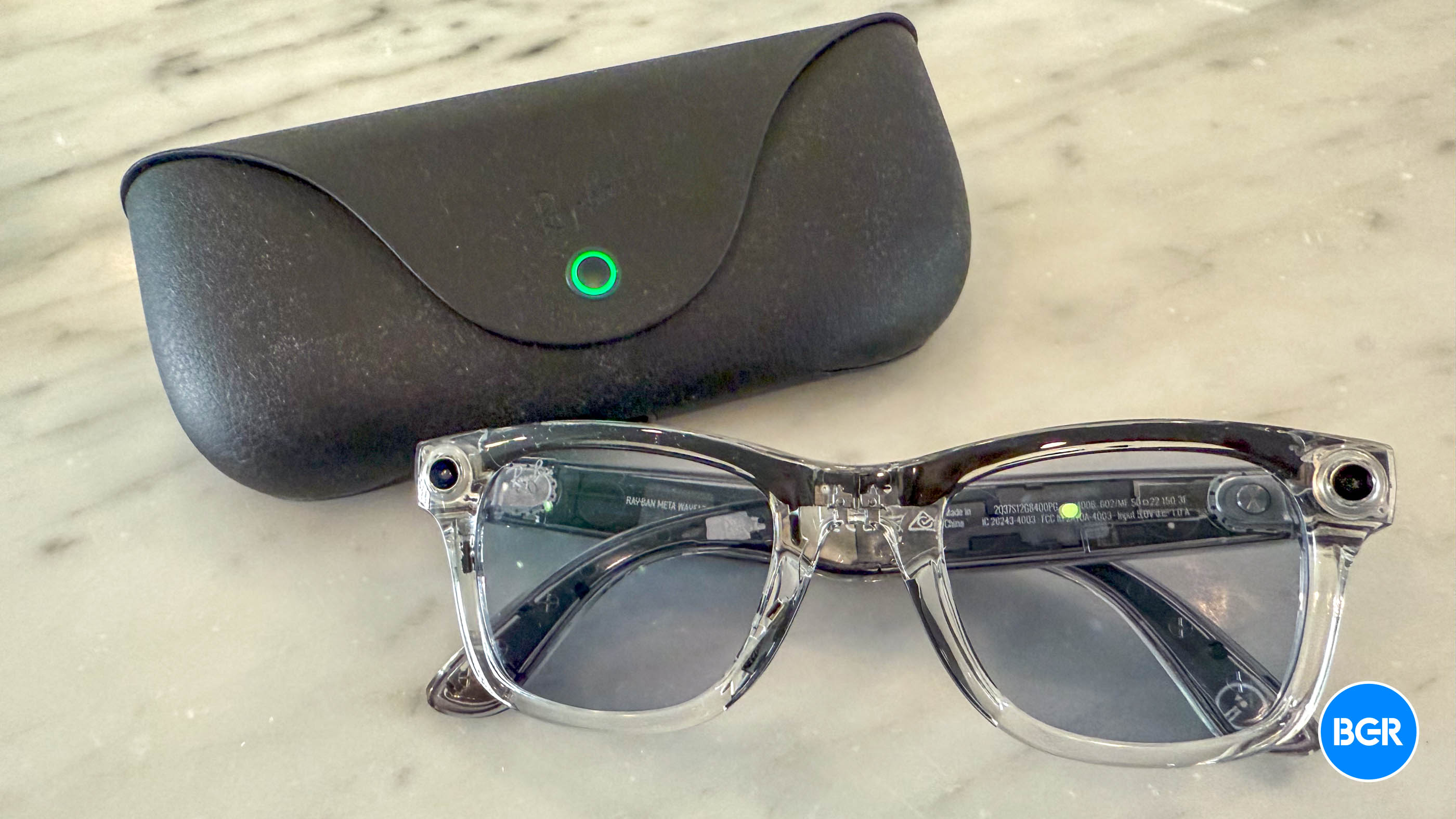As much as I thought I wanted the Vision Pro, and as impressed as I was with the demo experience in an Apple store this summer, I ended up not buying one. But I haven’t given up hope that I will one day get on the Vision Pro train. What I’m really looking forward to is a pair of Apple AR glasses that will work with the iPhone and eventually replace it.
That technology is far from ready, and Meta’s recent demo of a similar product proves that. But Meta is also successfully selling the Ray-Ban Meta smart glasses. It’s not a standalone product, as it requires a connection to a phone. However, the Ray-Ban Meta is a great product to experience the most recent innovations in generative AI.
Now, that’s a product that could very well precede true AR glasses. It turns out that Apple might be working on its own version of smart glasses. That’s not the only new wearable in the works. According to Mark Gurman, Apple is also developing AirPods with cameras and a cheaper Vision Pro version.
These products might be available in the coming years, starting with the cheaper Vision Pro.
Apple’s spatial computer might not be selling tremendously well, not that Apple can make that many units to begin with, but it’s a key development in the grander scheme, especially in the AI era. It introduces new software and hardware experiences that will probably be ported to smart and AR glasses in the future.
Apple will try to make the Vision Pro more affordable, with Gurman saying a cheaper version might start selling next year. The reporter noted in the Power On newsletter that Apple is eying a $2,000 price tag for the cheaper Vision Pro, detailing some of the downgrades Apple is considering for the lower-end model.
Apple might ditch the EyeSight tech used on the original Vision Pro. That tech uses inner-pointing cameras to show the user’s eyes to the outside world. Also, the lower-end model could use cheaper materials and an inferior processor. The current Vision Pro ships with an M2 chip, so Apple would have to use either an M1 processor or a version of the iPhone’s A18 chips.
A year later, Apple will launch a brand-new Vision Pro. The second-generation will likely be as costly as the first, though we have no details on its specs.

Apple’s smart glasses, which will compete against Meta’s Ray-Bans, could launch in 2027. That’s also when Apple might launch AirPods with cameras. Gurman says Apple wants to “salvage the billions of dollars spent on the Vision Pro’s visual intelligence technology, which can scan the environment around a user and supply useful data.”
We’ll soon see that technology in action via the iPhone 16. Apple calls it Visual Intelligence, with the iPhone 16’s new Camera Control button to act as a trigger for the mode. Apple supposedly wants to bring the Vision Pro’s ability to understand its surroundings to more products.
That’s actually something I think we need for the immediate future of genAI products. The AI will need eyes to assist you better. Siri will need eyes to provide better answers about your surroundings and context. Meta is doing precisely that with the Ray-Ban glasses.
Google also hinted at I/O 2024 that smart glasses might be in the works for a version of Gemini in the future. However, Google has yet to announce any hardware of its own.
Putting cameras into AirPods might be another way to accomplish the same job. However, I’d favor the glasses implementation over the AirPods.
Unfortunately, we’d still have to wait at least three years to get these products in stores. By then, Meta and Google visual tech will advance even further. On the other hand, Apple has a chance to further improve its visionOS ecosystem by bringing Apple Intelligence to it. The software experience might be an advantage over rivals, but there’s a lot of speculation here.
Gurman did mention some of these products earlier this year, including the smart glasses, AirPods with cameras, and the so-called Apple Ring wearable. More recently, he said the latter would not become a commercial Apple product.








